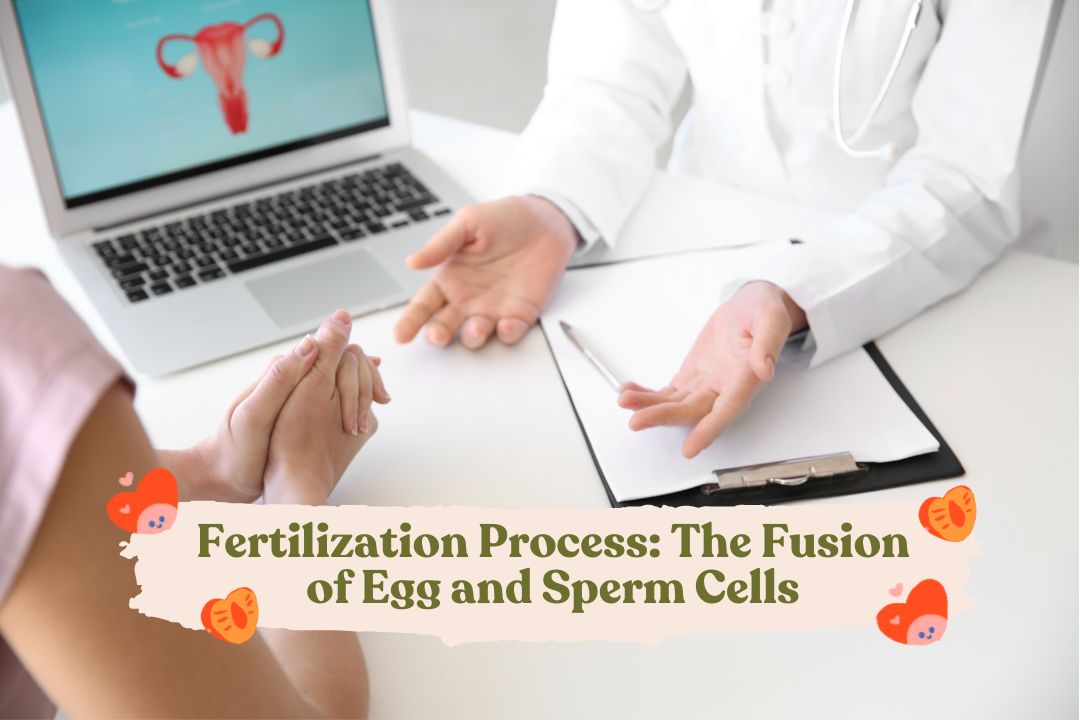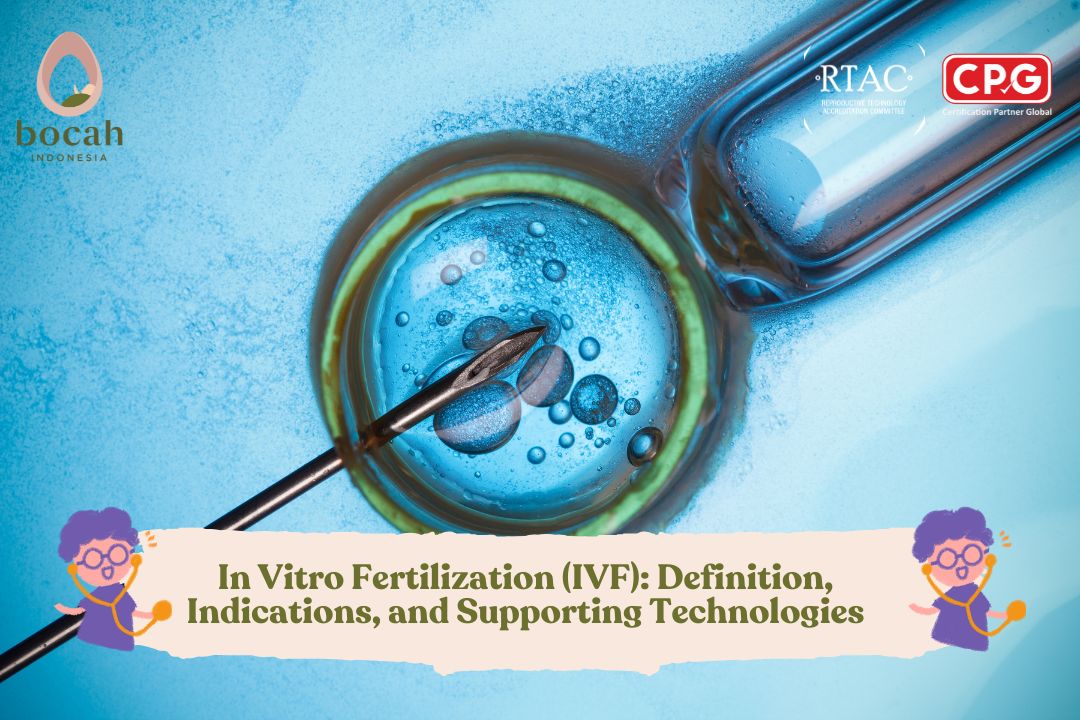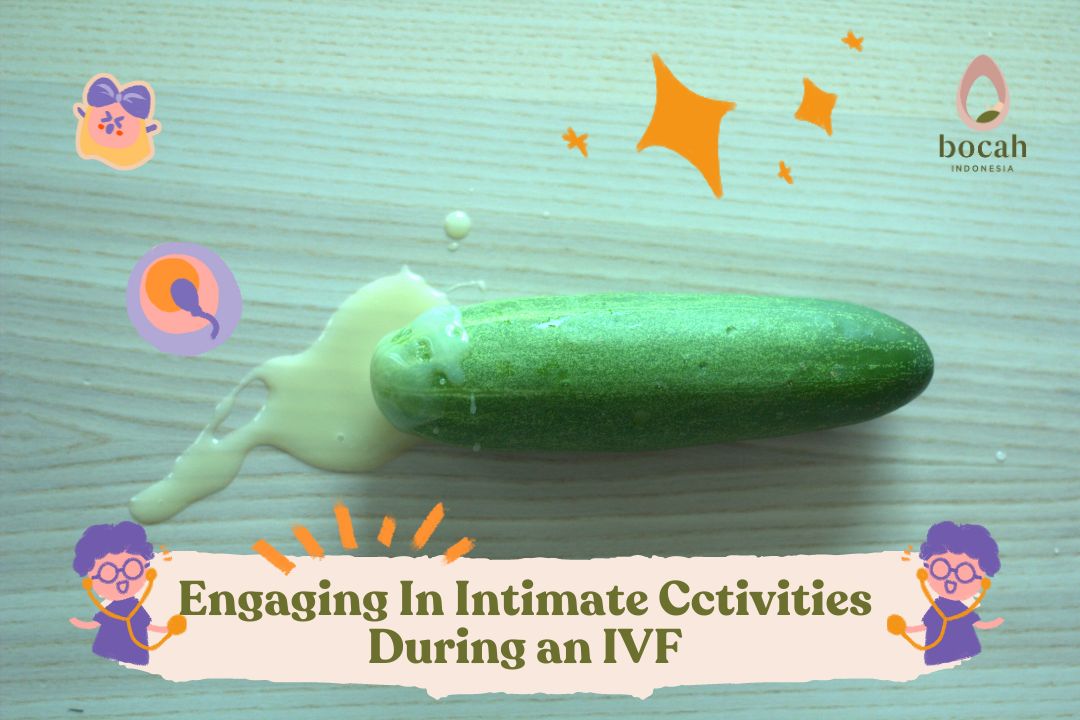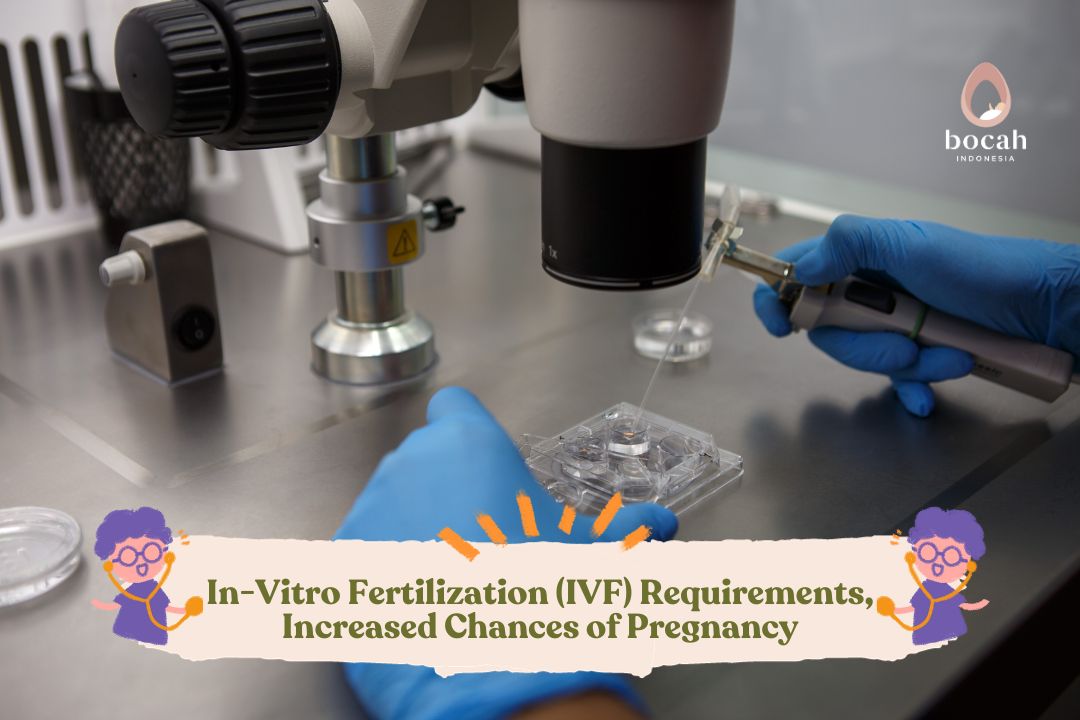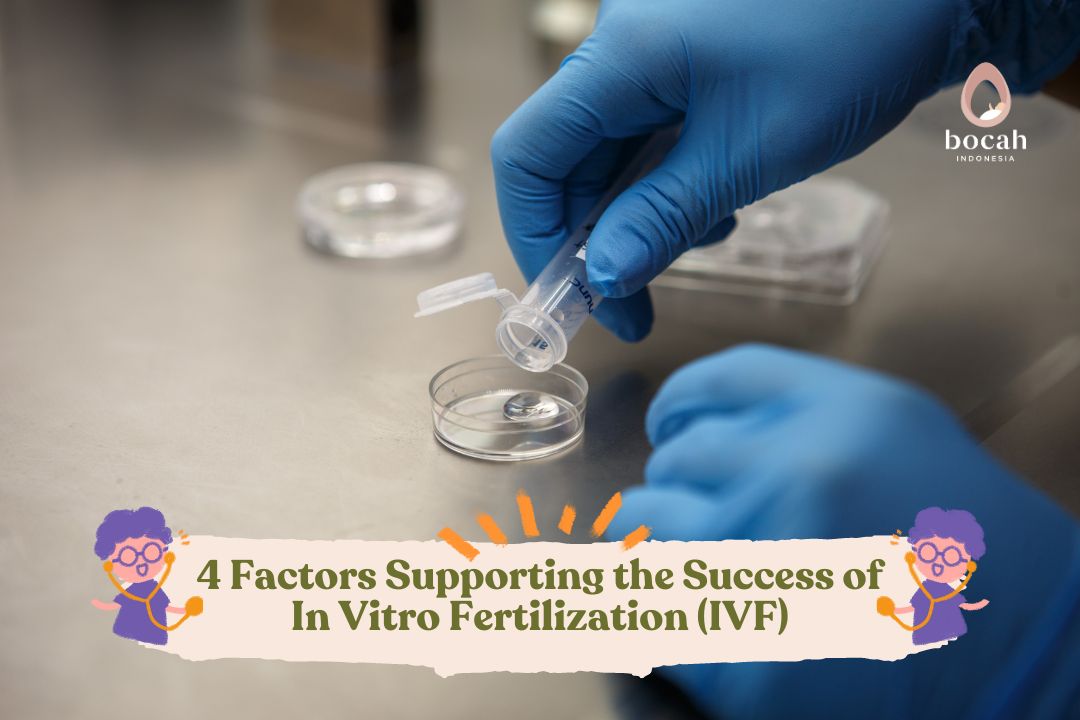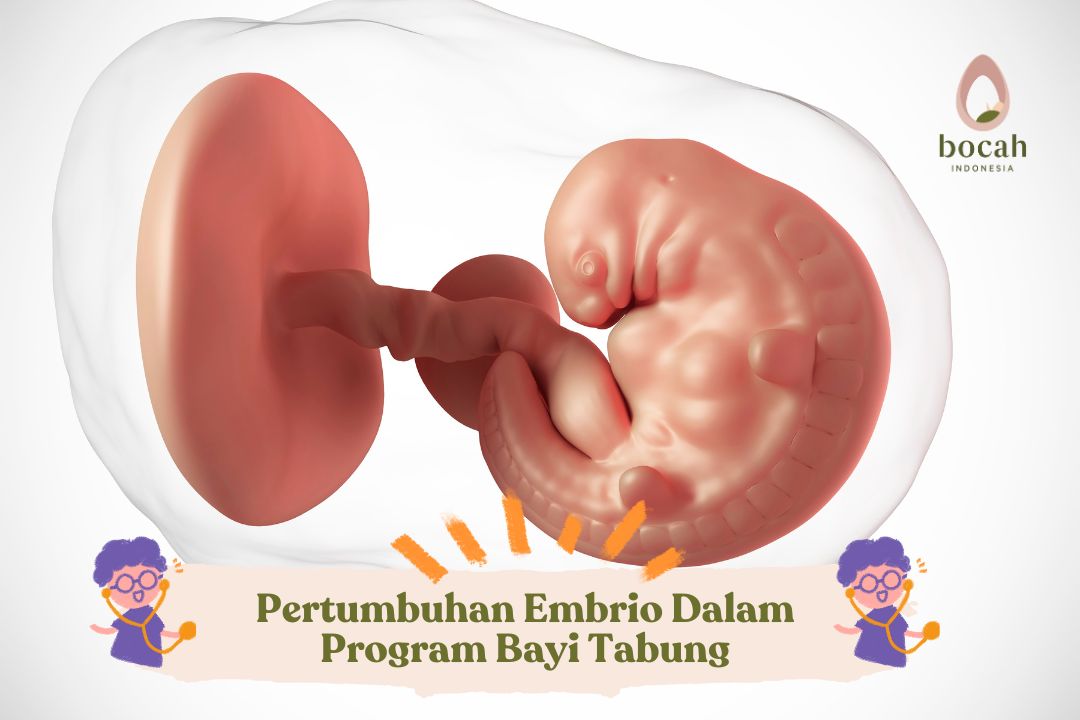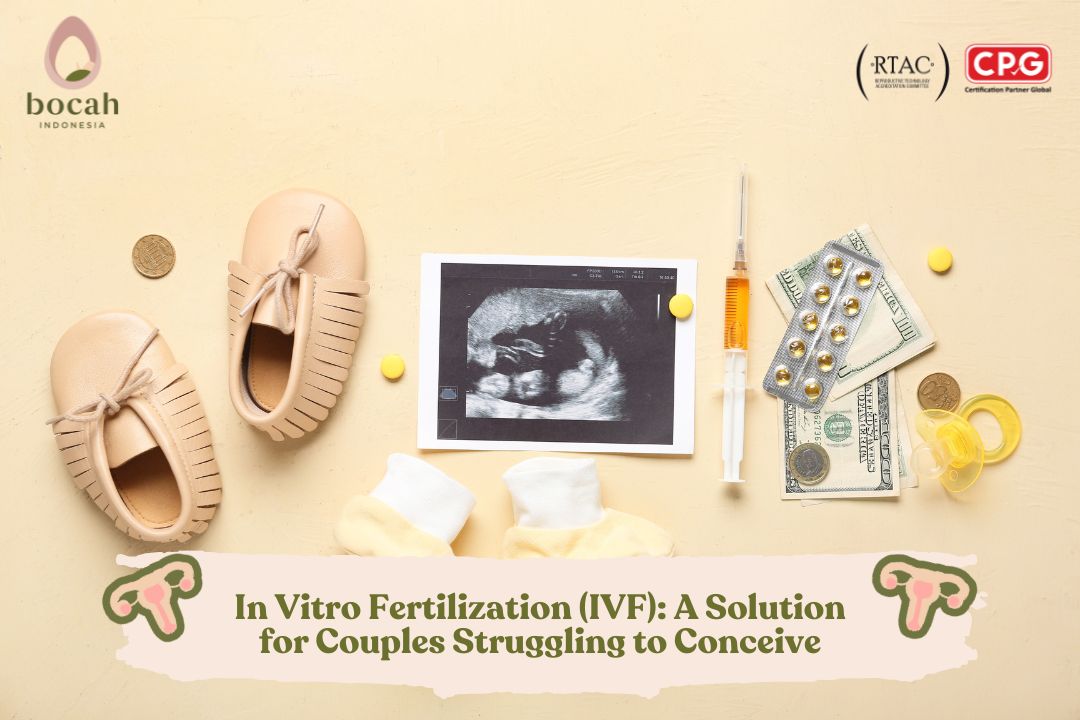What are PGT-A and PGT-M Tests in the In Vitro Fertilization Process?
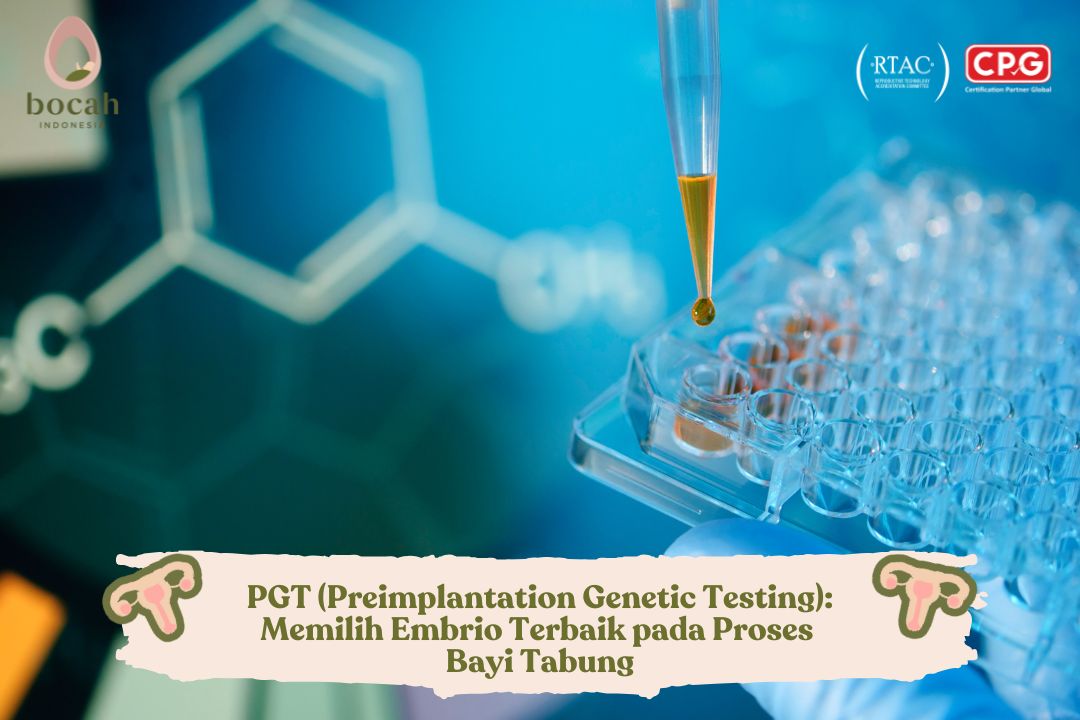
There are several tests prospective mothers should be aware of when undergoing an IVF program. PGT-A and PGT-M are among them. Find out more detailed information in this article.
Are you and your partner interested in undergoing an In Vitro Fertilization (IVF) program or planning to start one? There are many crucial aspects you need to understand, one of which is the series of tests that can significantly help increase the success rate of the program.
Two of these are PGT-A and PGT-M, two terms that might not be very familiar but play a major role in ensuring the health of the embryo. Curious about the difference between them and when these tests should be performed? Let’s explore the details in the following article.
What is PGT?
Before delving deeper into the types of PGT, such as PGT-A and PGT-M, it is important for you and your partner to first understand what PGT is and why this test can be so significant in an IVF program.
PGT, or Preimplantation Genetic Testing, is an examination performed to detect the presence of genetic abnormalities in embryos created through an IVF program. The goal is to ensure that the embryo selected and transferred into the mother’s uterus is genetically healthy, thereby increasing the chance of a successful pregnancy and reducing the risk of miscarriage.
Tanya Mincah tentang Promil?
This test is highly beneficial, especially for couples with a family history of genetic disorders who want to ensure their future child is born healthy.
PGT is historically categorized into two types based on its purpose:
-
Preimplantation Genetic Diagnosis (PGD): This PGD technology was performed to detect specific genetic diseases that might be inherited from either parent, such as Fragile X Syndrome or Duchenne Muscular Dystrophy.
-
Preimplantation Genetic Screening (PGS): This aimed to examine the number of chromosomes in the embryo. This is because an unbalanced number of chromosomes can cause the embryo to fail to develop or trigger a miscarriage, and this can happen to anyone, especially when age and medical conditions are contributing factors.
Through PGT, couples can take a more precise step to maximize the chances of having a healthy baby.
Types of PGT in the In Vitro Fertilization Process
PGT-A (Preimplantation Genetic Testing for Aneuploidies)
This PGT test aims to examine the chromosome number in the embryo. Embryos that have an abnormal chromosome number (aneuploidy) are at high risk of developmental failure, failing to implant in the uterus, or causing a miscarriage.
PGT-A helps select embryos with the correct chromosome number for transfer into the mother’s uterus. This significantly helps increase the likelihood of pregnancy and reduces the risk of complications. One example of a chromosomal abnormality that can be detected is Down Syndrome.
PGT-M (Preimplantation Genetic Testing for Monogenic/Single Gene Disorders)
This type of PGT is performed if one or both parents are carriers of a specific genetic disease inherited through a single gene. The purpose of this test is to detect whether the embryo carries the gene causing the disease, ensuring that only healthy embryos without the disorder are selected for uterine transfer.
This test is typically performed to detect hereditary diseases such as Thalassemia, Fragile X Syndrome, Huntington’s Disease, or Duchenne Muscular Dystrophy (DMD).
PGT-SR (Preimplantation Genetic Testing for Structural Rearrangements)
This test is performed for couples who have chromosomal structural abnormalities, such as translocations or inversions, which can increase the risk of the embryo having genetic abnormalities or resulting in a miscarriage. PGT-SR helps ensure the embryo has a balanced chromosomal structure before transfer to the uterus, thus lowering the risk of failed pregnancy or birth with a genetic disorder.
What is the Difference Between PGT-A and PGT-M?
-
PGT-A is a test that examines the chromosome number in the embryo, to ensure the transferred embryo has a complete and normal set of chromosomes. This test is typically recommended for couples who are at risk of recurrent miscarriage or implantation failure due to chromosomal issues, such as mothers over the age of 35.
-
PGT-M, on the other hand, is performed to detect specific genetic diseases inherited from either parent. This test is crucial for couples with a history of hereditary disease or who are known genetic carriers of a specific condition, to prevent the transfer of an affected embryo.
Is PGT Testing Mandatory?
PGT testing is not always mandatory for all couples undergoing an IVF fertility program. This screening is usually recommended based on the specific health conditions and medical history of the couple. Therefore, it is essential to consult with a fertility specialist to receive appropriate advice tailored to the needs and condition of each individual couple.
Every medical procedure, including PGT, has its advantages and disadvantages. For couples undergoing an IVF program, PGT can help select the best embryo for uterine transfer. By doing this, the risk of miscarriage and failed implantation can be reduced, thereby increasing the chance of pregnancy. This can also save costs by reducing the possibility of the couple having to repeat IVF cycles if the pregnancy is unsuccessful.
However, like other assisted reproductive procedures, PGT also carries risks. One is the process of cell removal from the embryo (biopsy), which is quite invasive and carries a slight risk of damaging an otherwise healthy embryo. In some cases, the embryo may arrest development after this procedure. Additionally, if the number of available embryos is limited and some results show genetic abnormalities, the transfer process might be canceled if no viable embryo is available for implantation.
Through advanced technology like PGT, the opportunity to have a healthy child is increasingly open for couples. If you are considering undergoing an IVF program supplemented with PGT technology, consult your doctor immediately!
Source:
- American Society for Reproductive Medicine (ASRM). (2014). Preimplantation genetic testing [Fact Sheet]. Retrieved from:
- Greco, E., Litwicka, K., Minasi, M. G., Cursio, E., Greco, P. F., & Barillari, P. (2020). Preimplantation genetic testing: Where we are today. International Journal of Molecular Sciences, 21(12), 4381.
- Parikh, F. R., Athalye, A. S., Naik, N. J., Naik, D. J., Sanap, R. R., & Madon, P. F. (2018). Preimplantation genetic testing: Its evolution, where are we today? Journal of Human Reproductive Sciences, 11(4), 306–314.
- Schattman, G. L., & Xu, K. (2023). Preimplantation genetic testing. In Post, T. W. (Ed.), UpToDate. Waltham, MA: UpToDate. Retrieved from:
- Mahmoud, K. M., Elsharkawy, W. A., Salem, H. A., & Ibrahim, M. H. (2010). Impact of oral zinc therapy on the level of sex hormones in male patients on hemodialysis. Renal Failure, 32(4), 417–422.


